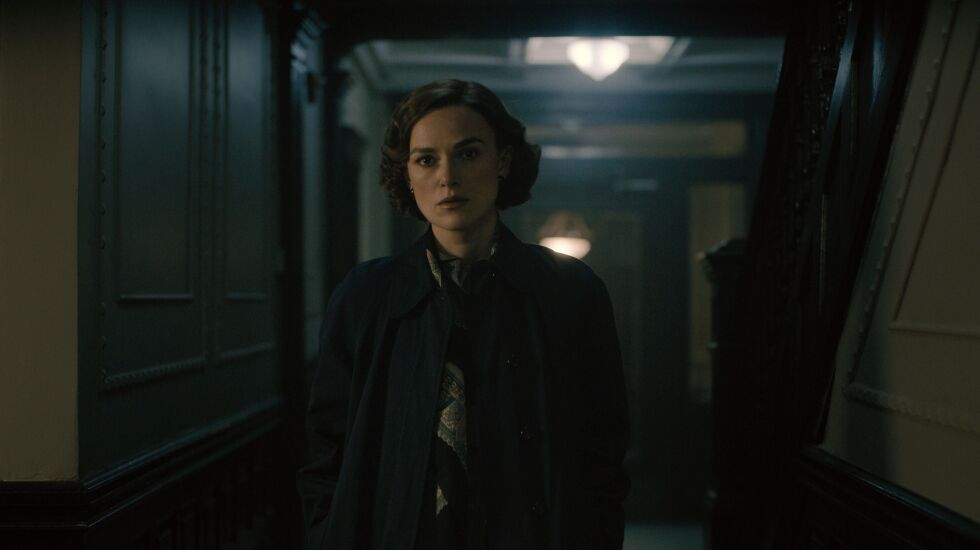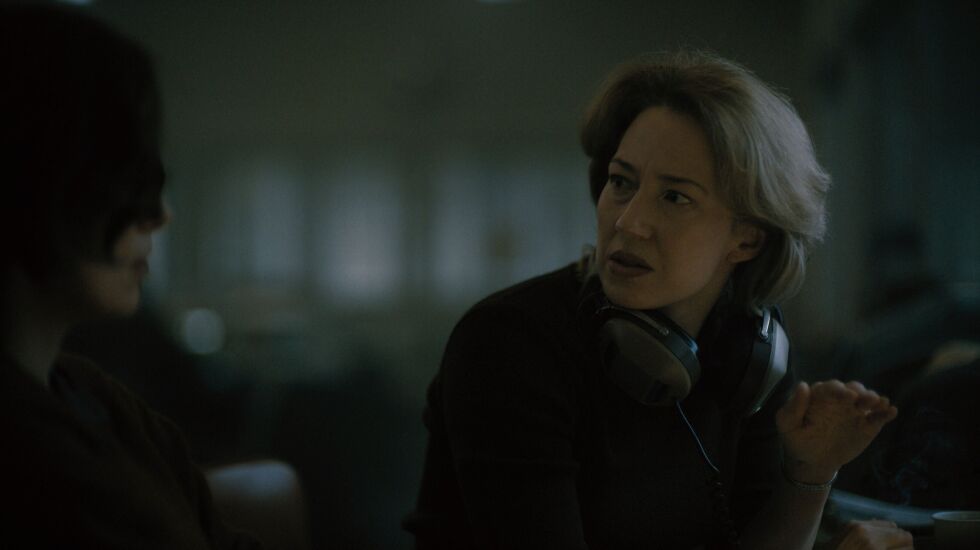
From the “Pirates of the Caribbean” movies to “King Arthur,” from “Pride and Prejudice” to “Atonement,” from “Silk” to “The Duchess,” from “Anna Karenina” to “Colette,” Keira Knightley has made a brilliant career forged largely from period-piece costume dramas — and Knightley travels back in time once again, albeit in quite different fashion, in the sobering and gripping crime drama “Boston Strangler.” In the process, she delivers one of my favorite Keira Knightley performances of all time.
Masking her British accent in impressive fashion, Knightley disappears into the role of the real-life Boston newspaper reporter Loretta McLaughlin, a young and ambitious and doggedly determined journalist who teamed up with the more experienced, world-weary Jean Cole (the magnificent Carrie Coon) to break story after story as they investigated the case of the Boston Strangler, the killer who murdered at least 11 women in the Boston area in the early 1960s.
Young hotshot teams with savvy veteran to fight through bureaucracy to crack a huge story? If that sounds like “All the President’s Men,” it seems likely writer-director Matt Ruskin was influenced by Alan J. Pakula’s 1976 classic, and perhaps even more so by David Fincher’s “Zodiac.” As was the case with the Zodiac murders, questions still remain about the number of victims and the identity of the killer or killers in the Strangler case. And as was the case with Fincher’s film, “Boston Strangler” tells the story almost exclusively from the points of view of the investigators. (As opposed to the 1968 film “The Boston Strangler,” a very loose interpretation of events that focused on Henry Fonda’s chief detective and Tony Curtis’ Albert DeSalvo, who confessed to the murders but whose guilt remains in question to this day.)
With cinematographer Ben Kutchins (“Ozark,” “The White Lotus”) lensing in effectively unsettling, saturated and almost sickly tones of green and brown and gray, and a soundtrack with period-piece tunes such as Martha Reeves & The Vandellas’ “Nowhere to Run,” we’re plunged into the world of Boston in the early 1960s. Knightley’s Loretta is a reporter for the Boston Record American, working in the Lifestyle department and handling assignments such as reviewing the new Sunbeam toaster hitting the market. The only woman working the hard news beat is Coon’s Jean, who strides into the newsroom one day wearing a nurse’s uniform and starts cranking out a story about patient abuse. Jean’s the real deal; she’s doing the kind of work Loretta aspires to be doing.
Working on her own, Loretta discovers that three women have been strangled in the last two weeks. She brings the possible connection to her editor, Jack (Chris Cooper), who growls, “I don’t see the interest. These are nobodies.” Comes the response from Jean: “Who do you think our readers are?” Jack eventually relents and gives his blessing to Jean profiling the victims to see if there’s a bigger story here — with the caveat that she partner up with the veteran Loretta, who can show her the ropes. This is the beginning of a journalistic partnership, and of course a friendship.

On occasion, we see glimpses of a shadowy figure talking his way into a house or an apartment, and we hear the cries and muffled screams of the victim — and then we cut to the aftermath and the crime scene, with police and media swarming everywhere. (There are certain moments when Loretta is in male-dominated surroundings that have distinct echoes of Clarice Starling’s experiences in “The Silence of the Lambs.”) Writer-director Ruskin and editor Anne McCabe do a superb job of keeping the story moving, even though much of Loretta’s work involves grinding it out by knocking on doors, researching news clippings, interviewing survivors and relatives, making calls from pay phones, etc., etc.
Every few scenes, we’re introduced to a key supporting player, with the first-rate cast including Alessandra Nivola as a detective who is sympathetic to Loretta; Bill Camp as the police commissioner, an obstinate, old-school type who tries to smother the press and deny there’s a serial killer(s) on the loose until it’s impossible to ignore the brutal reality of what’s transpiring in his city, and David Dastmalchian as Albert DeSalvo, the prime suspect.
Without ever getting too heavy-handed, “Boston Strangler” serves up constant reminders of the way the world worked in the early 1960s, with Loretta and Jean constantly battling sexism and stereotypes every step of the way. Loretta’s husband, James, played by Morgan Spector, is admirably supportive of her career at first, but becomes understandably frustrated when Loretta becomes obsessed with the case and is rarely there for James and the children.
There’s a poignant moment late in the film when Loretta returns home after pursuing an out-of-state angle to the story, sees the light of the television emanating from the living room, indicating James is waiting up for her — and she drives away, unable or unwilling to re-enter a life so far removed from her work. It’s one of the many, many instances when “Boston Strangler” rings true.







